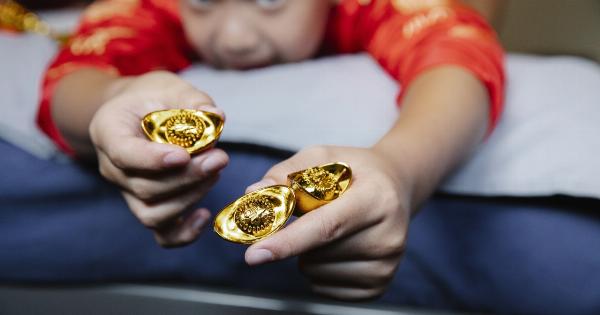True happiness is a subject that has intrigued philosophers, scholars, and individuals alike for centuries. While many people associate happiness with material wealth and financial success, the reality is that true happiness is not dependent on money.
This article explores the reasons why money does not guarantee happiness and uncovers the key factors that contribute to genuine and lasting happiness.
The Illusion of Wealth
In today’s materialistic world, money is often equated with happiness. Many individuals believe that if they achieve financial prosperity, they will automatically be happy.
However, this perspective fails to recognize the transient nature of money and the emptiness it can leave behind. Wealth alone cannot provide the deep sense of fulfillment and joy that humans crave.
The Role of Money in Basic Needs
While true happiness does not depend on money, it is essential to acknowledge that financial stability plays a crucial role in meeting our basic needs.
Money can provide necessities such as food, shelter, and healthcare, which are the foundation for a decent standard of living. However, once these basic needs are met, the correlation between money and happiness weakens significantly.
The Adaptation Effect
One of the main reasons why money fails to bring lasting happiness is the human tendency to adapt to their circumstances.
Initially, a sudden increase in wealth may lead to a surge in happiness, but over time, individuals become accustomed to their new financial situation. This phenomenon, known as the adaptation effect, illustrates how the pursuit of money as a source of happiness is ultimately futile.
Importance of Relationships
Contrary to popular belief, money cannot buy meaningful relationships and genuine connections with others. Human beings are social creatures who thrive on love, companionship, and emotional support.
True happiness stems from cultivating and nurturing these relationships, not from accumulating wealth. A warm hug, a heartfelt conversation, or the laughter shared with loved ones are priceless experiences that money cannot replicate.
The Quest for Purpose and Meaning
Happiness is deeply intertwined with having a sense of purpose and meaning in life. Money alone cannot provide direction or fulfillment.
True happiness comes from pursuing passions, contributing to something greater than ourselves, and finding a sense of purpose in our everyday lives. Whether it is through creative expression, helping others, or making a positive impact on the world, genuine happiness is found when we live according to our values and beliefs.
Experiences over Possessions
Research consistently highlights that the happiness derived from experiences far surpasses the fleeting joy brought by material possessions. While a new gadget or luxury item may initially bring excitement, this happiness quickly fades.
On the other hand, experiences such as traveling, trying new activities, and spending quality time with loved ones create lasting memories and a profound sense of contentment.
The Paradox of Choice
In today’s consumerist culture, money affords us the opportunity to have numerous choices and options. However, the paradox of choice suggests that an abundance of options does not lead to increased happiness.
Instead, it often contributes to anxiety, indecision, and dissatisfaction. True happiness lies in simplicity, gratitude, and making the most out of what we have, rather than constantly pursuing more.
The Influence of Social Comparison
Money often becomes a source for social comparison, leading individuals to judge their own happiness based on the wealth and possessions of others. This comparison mindset fosters feelings of inadequacy, envy, and perpetual striving for more.
True happiness involves embracing one’s uniqueness, focusing on personal growth, and celebrating individual accomplishments without being consumed by the materialistic standards set by society.
Health and Well-being
No amount of money can guarantee good health or protect against life’s unexpected challenges. True happiness is closely connected to physical and mental well-being.
Investing time and effort into activities that promote self-care, such as exercise, meditation, and maintaining healthy relationships, are more likely to contribute to long-term happiness than accumulating wealth.
The Pursuit of Authenticity
Ultimately, true happiness comes from living an authentic life aligned with our true selves. Money and material possessions are external factors that do not define who we are at our core.
Genuine happiness is found when we live according to our values, embrace our passions, and stay true to our authentic selves, regardless of financial status.
Conclusion
While money can undoubtedly make life more comfortable and provide temporary pleasures, true happiness is not dependent on wealth.
Lasting happiness stems from cultivating deep relationships, finding purpose and meaning in life, embracing experiences over possessions, being grateful for what we have, and living in alignment with our authentic selves. By shifting our focus away from the pursuit of money and material wealth, we open ourselves up to a world of genuine and profound happiness.































